Exploring the Best Renew Energy Solutions for a Greener Future
The world is experiencing a major shift towards sustainability, and one of the key elements in this transformation is the adoption of best renew energy solutions. As the effects of climate change become more evident and fossil fuel resources dwindle, renewable energy is emerging as the most viable and eco-friendly alternative. In this post, we’ll explore some of the best renew energy solutions available today, their benefits, and how they are contributing to a cleaner, greener future.
Why Are Renew Energy Solutions So Important?
Renewable energy is essential for several reasons. Traditional energy sources like coal, oil, and natural gas are finite and produce harmful emissions that contribute to global warming and environmental degradation. On the other hand, best enew energy solutions rely on natural resources—like the sun, wind, and water—which are abundant and eco-friendly. Using these sustainable energy sources reduces greenhouse gas emissions, conserves natural resources, and helps protect the planet for future generations.
The Top Renew Energy Solutions
Let’s dive into some of the most popular and effective renew energy solutions that are shaping the future of energy production.
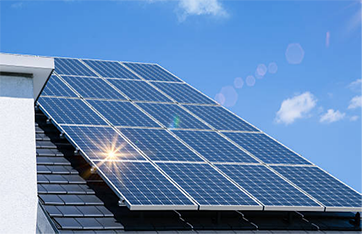
Solar Power
One of the most well-known best renew energy solutions is solar power. Solar panels capture energy from the sun and convert it into electricity. With advancements in solar technology, panels have become more efficient and affordable, making solar energy accessible to homeowners, businesses, and even entire communities.
The biggest benefit of solar power is that sunlight is a free and limitless resource. Solar panels can be installed on rooftops, open land, or even integrated into building materials like windows and walls. Whether you’re using solar energy to power your home or contribute electricity to the grid, it’s a powerful solution for reducing reliance on fossil fuels.
In addition to traditional solar panels, solar technology is evolving with innovations like solar farms, floating solar installations on bodies of water, and even portable solar chargers for personal devices. Solar power is one of the most versatile best renew energy solutions available today.
Wind Energy
Wind energy is another highly effective form of renewable energy. Wind turbines capture the kinetic energy from wind and convert it into electricity. While wind farms are typically located in areas with strong and consistent wind patterns, advancements in turbine technology are making wind energy more efficient, even in less windy regions.
Large-scale wind farms can generate significant amounts of electricity for entire cities or regions, while smaller turbines are available for individual homes or businesses. Wind energy is clean, produces no emissions, and offers a dependable alternative to traditional power sources.
The rise of offshore wind farms has expanded the possibilities of wind energy, utilizing strong coastal winds to generate power without taking up land space. This makes wind energy a scalable solution, capable of meeting large energy demands while minimizing environmental impact.
Hydropower
Hydropower, or hydroelectric power, is one of the oldest forms of renewable energy and remains one of the most reliable. It generates electricity by harnessing the power of moving water, typically from rivers or dams. The flow of water turns turbines that generate power.
Hydropower is a consistent energy source that can produce electricity on demand, making it a vital component of many energy grids around the world. Because water is constantly flowing, hydropower is more reliable than some other best renew energy solutions, such as wind or solar, which can be intermittent.
Hydropower can vary in scale, from large dams that generate power for cities and regions to smaller installations that serve individual homes or businesses. It’s an essential piece of the renewable energy puzzle, providing both flexibility and reliability.
Geothermal Energy
Geothermal energy taps into the Earth’s internal heat to generate electricity. This energy source is typically harnessed by using steam or hot water reservoirs located underground to turn turbines and create power. Geothermal energy is a stable and continuous power source, as the Earth’s heat is not affected by weather conditions or time of day.
While geothermal plants require specific geological conditions, they can produce a significant amount of energy with a low carbon footprint. Geothermal energy systems can be used to provide both electricity and heating for buildings, making them an efficient solution for year-round energy needs.
Geothermal energy may not be as widespread as solar or wind, but it’s a valuable addition to the suite of renew energy solutions, especially in areas with access to geothermal resources.
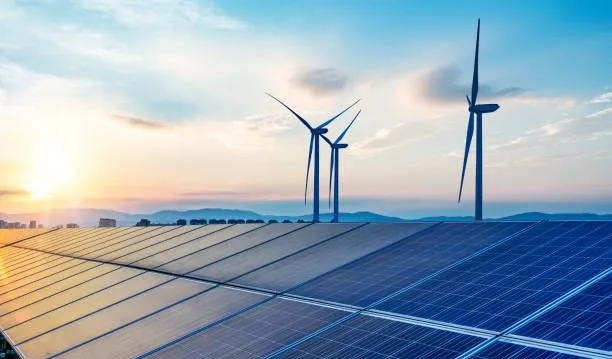
Biomass Energy
Biomass energy is created by burning organic materials like wood, agricultural residues, or even waste products to generate electricity or heat. This form of energy is considered renewable because the materials used can be replenished through natural growth cycles.
Biomass energy is particularly valuable because it can make use of waste products that would otherwise contribute to landfills or pollution. By converting these materials into energy, biomass helps reduce waste while generating power.
While it does produce some emissions, biomass is still a cleaner alternative to fossil fuels and can be a great option for areas where other renew energy solutions, like wind or solar, are less practical.
The Future of Renew Energy Solutions
As the world continues to prioritize sustainability, the development of renew energy solutions will play a crucial role in reducing carbon emissions and meeting global energy needs. With advances in technology, renewable energy is becoming more efficient, affordable, and accessible.
Governments, businesses, and individuals are investing in renewable energy infrastructure, creating jobs, and fostering innovation in the energy sector. By continuing to adopt and expand renew energy solutions, we can reduce our dependence on fossil fuels and work toward a greener future.
Making the Switch to Renewable Energy
If you’re interested in making the switch to renewable energy, there are several options available to you. Installing solar panels on your home, investing in wind energy, or even choosing a renewable energy provider for your electricity can all make a big difference in reducing your carbon footprint.
Additionally, many governments offer incentives and rebates for those who invest in renew energy solutions, making it more affordable to go green. The transition to renewable energy is not only a responsible choice for the environment, but it can also save you money on energy bills in the long run.
Conclusion
Renew energy solutions like solar, wind, hydropower, geothermal, and biomass are leading the way to a sustainable future. These technologies provide clean, reliable, and abundant energy sources that can help us combat climate change and reduce our dependence on fossil fuels. By adopting these renewable energy options, we can all contribute to a healthier planet and a brighter, greener future.
Contact us
- Email:[email protected]
- Tel: +86 13651638099
- Address: 333 Fengcun Road, Fengxian District, Shanghai
Get A Quote Now!
Related product links are available directly
Site storage products:Site storage products 归档 – (energystoragecontainer.com)
Lithium Battery:Lithium Battery 归档 – (energystoragecontainer.com)
Read more
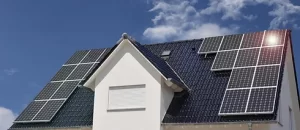
Home Solar Panel Selection Guide: Match Your Energy Needs
When it comes to optimizing your energy efficiency, understanding how to effectively stack your solar battery storage system is key. With increasing energy demands and the push for sustainability, many homeowners are looking into home battery solutions.

How to Stack Home Energy Storage?
When it comes to optimizing your energy efficiency, understanding how to effectively stack your solar battery storage system is key. With increasing energy demands and the push for sustainability, many homeowners are looking into home battery solutions.
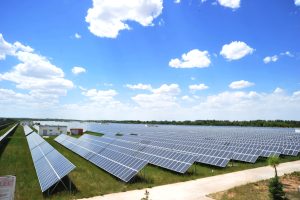
Solar Generator Kit: Creating a Solution for Home Energy Self-Sufficiency
As homeowners look to reduce dependence on traditional power grids, solar generator kits offer a practical and sustainable solution. These kits combine essential components like solar pv modules, energy storage batteries, and inverters, helping households tap into renewable energy sources and achieve self-sufficiency.
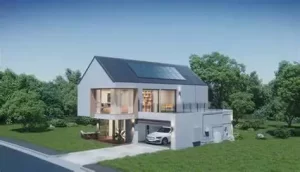
Economic Analysis of Household Energy Storage Systems: Investment Returns and Cost-Effectiveness
As more homeowners consider installing home energy storage batteries and battery for home energy storage systems, evaluating the financial return becomes key.
